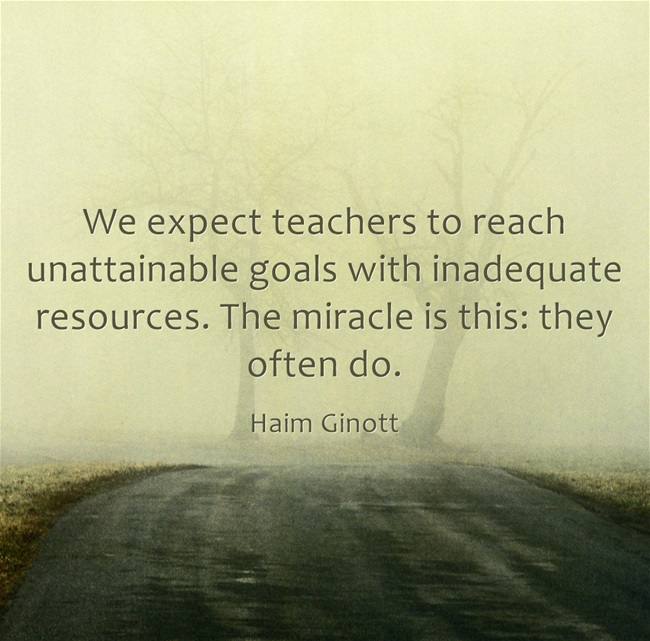There’s a growing shortage of teachers across the United States. Rising demand, due to schools reinstating classes and programs cut during the recent recession, is just one of the reasons. Another has to do with how many people are entering the teaching profession. “Enrollment in teacher-preparation programs dropped from 691,000 in 2009 to 451,000 in 2014, a 35 percent decline, according to the study, A Coming Crisis in Teaching? Teacher Supply, Demand and Shortages in the U.S.” Of course, with the growing criticism of public education that’s been prevalent, along with low wages and increased pressure to teach to the test, it’s not surprising that fewer individuals want to spend their days in the classroom. A third reason for the shortage is that “nearly two-thirds of the teachers who leave the profession do so before retirement age and cite dissatisfaction with their job as the reason.” No big surprise there either.
What’s Really Behind the Teacher Shortage?
I know of a teacher fresh out of college who is currently working in a Texas school district. He has received lots of support from his administration, other teachers, and the community, and, in his words, he has “really great kids.” But he still comes home late each day, exhausted and worried about the additional work he needs to do before he goes back to the classroom tomorrow. He worries that he isn’t reaching all of his students and that he won’t be able to cover all of the curriculum with them that’s required. When we met over Thanksgiving, he admitted to me that he didn’t know teaching would be this hard. And, in my opinion, that’s the real crux of the teacher shortage.
For years, we’ve been told that almost anyone can be a teacher. Alternative certification programs encourage those who are tired of their current job or retired to come and teach, making it sound simple and easy to do. Some legislators who know little about learning theory, the demands of young minds, or the crush of curriculum that is forced on us question what we do every day, implying that teaching requires few skills. It’s time to let everyone know: Helping someone learn something is very, very difficult. And helping a large number of antsy, young someones learn content that they are not interested in is almost, but not quite, impossible. Good teaching is hard. It is not something that everyone can do. It is a calling and not a job.

What Can We Do?
So what can we do about it? If we as a nation believe that educating our children is one of the most important jobs anyone can have, then what actions should we be taking now to stave off a shortage of more than 100,000 teachers a year starting in 2018?
First, we need to make sure that everyone — parents, legislators, education professors, the media, and students — understands that teaching today is incredibly difficult, but also incredibly powerful when done right. And that the vast majority of our educators are doing it right day in and day out, in spite of tough conditions. Applaud them, support them, give them the resources they need, and pay them what they deserve.
Second, we need to provide even more hands-on classroom time with actual students in all of our teacher preparation programs. One semester of “observing” a classroom and one semester of student teaching is not enough time, which guarantees shock and horror when these new educators have their own classrooms. If engineering requires a five-year degree and medicine takes eight years, maybe becoming a teacher who works with the future of our country every day shouldn’t be done in just four years.
Third, our legislators and state boards of education must really look at the large amount of content that they expect our students to learn. In the US today, we teach an “inch deep and a mile wide,” covering thousands of topics to almost no depth at all. In countries where education is a priority, the curriculum has been greatly honed down to what is essential and not what is politically correct or what has been taught in the past. As we all know, if a student can Google the answer to a question, we may not need to spend time teaching it.
And finally, we need to thank these dedicated individuals who spend the majority of their time trying to make a difference in the lives of all they come in contact with. They are professionals with a capital “P” and deserve to be treated as such. They know what they are doing and, unless they ask for it, they don’t need outside “experts” giving them advice. Praise them, support them, provide them with professional learning opportunities that they request, and give them a hug when needed, because good teaching every day with every child is rocket science.
(Research cited in this blog is from a Washington Post article on September 14, 2016.)
